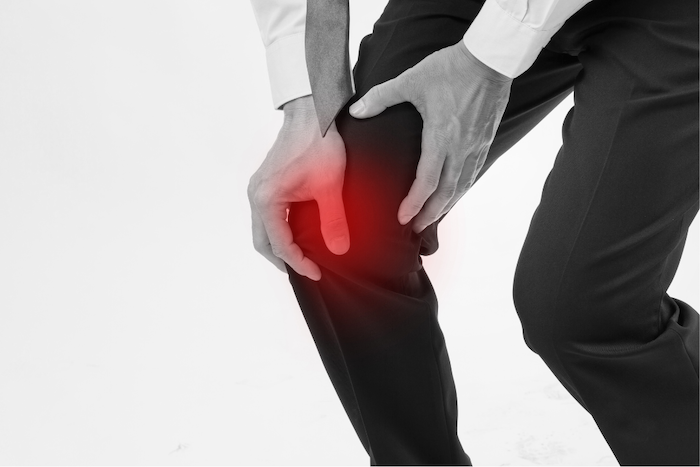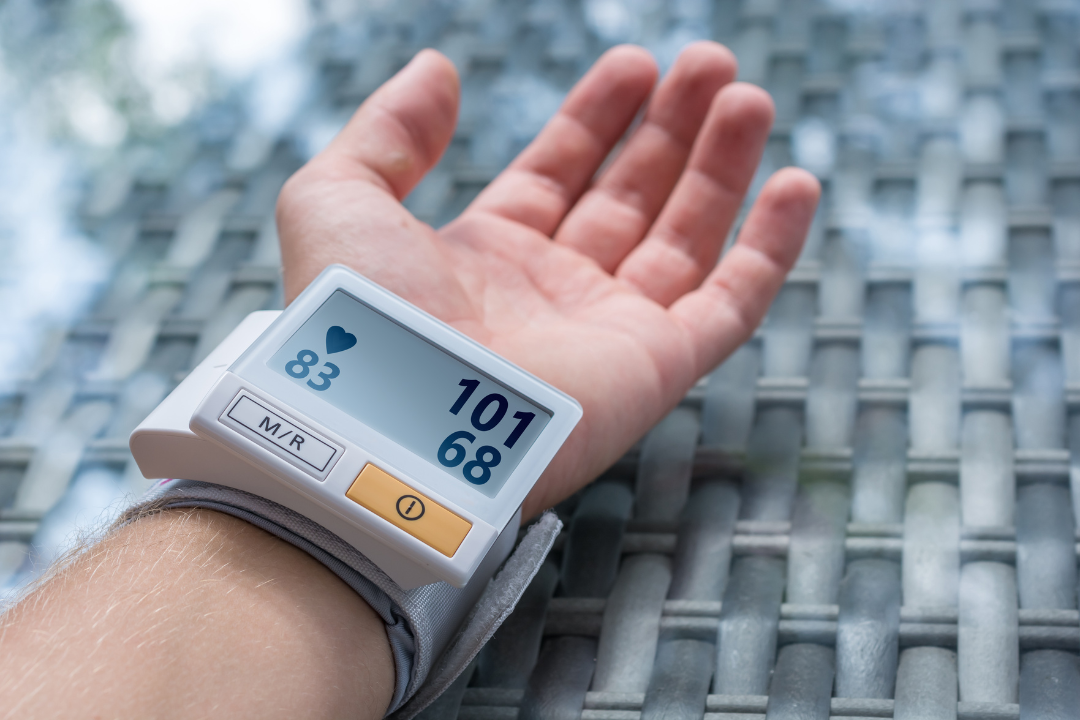The Benefits Of Vitamin C For Older Adults
As we age, it’s more important than ever to carefully maintain our health and wellness. This includes getting exercise, sleeping well, and ensuring we’re taking in proper nutrition. As it turns out, as we get older, we need more nutrients than previously to maintain proper health. For example, one recent meta-analysis of 36 high-quality studies […] The post The Benefits Of Vitamin C For Older Adults appeared first on Purality Health® Liposomal Products.

 As we age, it’s more important than ever to carefully maintain our health and wellness. This includes getting exercise, sleeping well, and ensuring we’re taking in proper nutrition. As it turns out, as we get older, we need more nutrients than previously to maintain proper health.
As we age, it’s more important than ever to carefully maintain our health and wellness. This includes getting exercise, sleeping well, and ensuring we’re taking in proper nutrition. As it turns out, as we get older, we need more nutrients than previously to maintain proper health.
For example, one recent meta-analysis of 36 high-quality studies found a huge discrepancy in vitamin C levels between those aged 60-96 and those aged 15-65. Even if older adults were receiving the same daily doses as those younger than them, tests showed that those over 60 had far lower levels of vitamin C. This reveals that higher levels of vitamin C than before are required in those over 60 years of age. [1]
If you’re over the age of 60 and concerned about vitamin C levels, here are some symptoms to look out for…
13 warning signs of low vitamin C
Rough, bumpy skin – Vitamin C is vital in the production of collagen, a protein responsible for the connective tissue of your skin, joints, hair, bones, and blood vessels. When levels are low, a condition known as keratosis can develop. With this condition, bumpy skin forms on the upper arms, thighs, or buttocks due to a buildup of keratin in the pores and insufficient collagen to balance it out. [2, 3, 4]
Corkscrew-shaped body hair – Because collagen protein structures are disrupted, a vitamin C deficiency may cause your hair to grow in a deformed, corkscrew shape. This is one of the hallmark signs of vitamin C deficiency. However, these hairs may often fall out before you can fully notice the issue. [5, 6]
Bright red hair follicles – When your vitamin C levels are low, the blood vessels that surround hair follicles become fragile and break, creating a redness around the follicles. This is a well-documented sign of severe vitamin C deficiency. [7, 8]
Spoon-shaped fingernails with red spots or lines – Nails that are concave-shaped, thin, and brittle can signify low levels of vitamin C deficiency. This may also be due to low iron on behalf of the low vitamin C intake. [7, 10]
Dry, damaged skin – Healthy skin has been found to contain large amounts of vitamin C. Vitamin C in the skin protects it from oxidative damage from UV rays and pollutants. It also increases collagen production. Higher levels of the vitamin are linked to healthier skin, while lower levels are associated with unhappy skin. [11, 12, 13, 14, 15, 16, 17]
Easy bruising – Bruising is what happens when blood vessels rupture, causing blood to leak into the surrounding areas. Easy bruising is a common sign of low vitamin C levels due to the drop in collagen. This is often one of the earliest symptoms of low vitamin C. [18]
Slowly healing wounds – Since vitamin C deficiency decreases collagen levels, it causes wounds to heal at a slower rate. In severe cases of vitamin C deficiency, wounds may even reopen. [19]
 Painful, swollen joints – Collagen strikes again. Due to the loss of collagen from low vitamin C, the tissue within the joints can easily degrade and cause joint pain, limping, or difficulty walking. [20, 21, 22, 23]
Painful, swollen joints – Collagen strikes again. Due to the loss of collagen from low vitamin C, the tissue within the joints can easily degrade and cause joint pain, limping, or difficulty walking. [20, 21, 22, 23]
Weak bones – Low vitamin C levels are linked to an increased risk of fracture and osteoporosis. This is because vitamin C plays a critical role in bone formation. [24, 25, 26, 27]
Bleeding gums and tooth loss – Red, swollen, and bleeding gums are another dead giveaway that your vitamin C levels are too low. Without adequate vitamin C, gum tissues become weakened and inflamed, causing blood vessels to bleed more easily. In advanced stages, the gums may even appear purple and rotten before the teeth fall out altogether. [28]
Poor immunity – Vitamin C is well-known for its immunity benefits. This is because it boosts immune cells to help them combat infection and destroy disease-causing pathogens. A vitamin C deficiency is clearly linked to poor immunity and a higher risk of infection and serious illness. [29, 30, 31, 32, 33]
Fatigue and poor mood – Two of the earliest symptoms of low vitamin C are fatigue and poor mood. These symptoms can even appear before a deficiency occurs. [32, 34]
Unexplained weight gain – Vitamin C regulates the release of fat from fat cells. As such, low levels of vitamin C have been linked to higher amounts of belly fat. [35, 36]
As you can see, many “common symptoms of aging” may simply be the result of low vitamin C levels. If you’re experiencing any of the above, it may be time to increase your levels of vitamin C.
The worst part is that – while vitamin C isn’t retained as well in older adults – it’s actually needed more than ever in those over the age of 50. Let’s take a look at what older adults can expect to get out of increased vitamin C intake.
Benefits of vitamin C for older adults
The fact of the matter is that a 60- or 70-year-old is going to need more vitamin C than a 30- or 40-year-old, and their body is going to use more of it. But if you’re an older adult planning to double up on vitamin C, what kind of benefits can you expect?
Keep reading to find out! Below are 6 benefits of vitamin C for older adults.
1. It’s a powerful antioxidant
Vitamin C is a strong antioxidant, meaning it helps defend the body against harmful diseases. It can also improve white blood cell function, making it an all-around fantastic immunity booster.
Research has shown that this has a great impact on disease prevention as well as longevity – meaning a longer, happier life! [37]
 2. Reduces blood pressure
2. Reduces blood pressure
Studies have shown that vitamin C can help relax the blood vessels, resulting in reduced blood pressure.
Data from 29 high-quality studies showed that taking “mega doses” of vitamin C – about five times the current (and outdated) recommended daily requirement – provided considerable drops in blood pressure. [38]
3. Helps prevent heart disease
Vitamin C has been shown to lower the risk of heart disease. High vitamin C levels have been linked to lower cholesterol, fewer cases of arterial stiffness, and improved endothelial function – all important factors when it comes to heart disease.
Researchers are still working to confirm exactly how, but current knowledge shows a direct link between vitamin C deficiency and the onset of heart disease. [39]
4. Reduces risk of gout
Vitamin C may reduce uric acid in the blood, helping to prevent gout, a painful form of arthritis. A number of studies – including one carried out over a 20-year period and involving 47,000 men – found that those with higher levels of vitamin C had a much lower risk of developing gout, along with significantly lower levels of uric acid in the blood. [40, 41, 42]
5. Increases iron absorption
Vitamin C can help the body absorb iron properly, making it extremely useful for vegetarians and those who don’t eat enough red meat or who are anemic.
Iron is a crucial mineral needed for many functions throughout the body. Studies have shown that taking vitamin C with iron increases the absorption of iron by 6 times! [43]
If you’re at all worried about your iron levels, increasing your vitamin C intake may help your body pull in more iron from the foods you eat.
 6. Enhances memory
6. Enhances memory
Studies have shown that people with dementia have low levels of vitamin C and low levels have overall been linked to forgetfulness. One analysis of 50 studies looking at the relationship between cognitive performance and vitamin C levels found that those with high levels of vitamin C in their blood had much better cognition, including memory and concentration. [44]
Research indicates that vitamin C supports brain cells and helps keep them free from damage. However, more studies are underway to fully determine the link. The main takeaway for researchers is that more vitamin C means better brain health and a lower risk of dementia.
The bottom line
Research is indicating more and more that as we age, many of the ailments associated with “getting older” may simply be due to the fact that our bodies now need more vitamin C, and we’re no longer getting enough.
Vitamin C is an extremely versatile vitamin. Our whole lives, we’ve been convinced that the only thing vitamin C is good for is to fight off a cold. As you’ve learned in today’s blog, the effects of vitamin C are far more expansive than that. If your body suddenly doesn’t have what it needs, then it’s going to have to prioritize vitamin C for some things while completely abandoning it for others. This can leave you feeling tired, moody, stressed, and with skin that seems to be aging more with each month.
Right now, we’re offering an incredible deal on our highly absorbable vitamin C.
When you click the link below, you can access a FREE bottle and FREE shipping with the purchase of just one bottle.
>>> Click here to learn more about this offer PLUS the other amazing freebies we’re currently offering with our Micelle Liposomal Vitamin C.
References:
- https://pubmed.ncbi.nlm.nih.gov/11068703/
- https://www.ncbi.nlm.nih.gov/pubmed/15150630
- https://www.ncbi.nlm.nih.gov/pubmed/18856156
- https://www.ncbi.nlm.nih.gov/pubmed/21034991
- https://www.ncbi.nlm.nih.gov/pubmed/10570371
- https://www.ncbi.nlm.nih.gov/pubmed/26508719
- https://www.ncbi.nlm.nih.gov/pubmed/10570371
- https://www.ncbi.nlm.nih.gov/pubmed/26508719
- https://www.ncbi.nlm.nih.gov/pubmed/10570371
- https://www.ncbi.nlm.nih.gov/pubmed/20620759
- https://www.ncbi.nlm.nih.gov/pubmed/28805671
- https://www.ncbi.nlm.nih.gov/pubmed/9436614
- https://www.ncbi.nlm.nih.gov/pubmed/15102093
- https://www.ncbi.nlm.nih.gov/pubmed/18973801
- https://www.ncbi.nlm.nih.gov/pubmed/17921406
- https://www.ncbi.nlm.nih.gov/pubmed/28112767
- https://www.ncbi.nlm.nih.gov/pubmed/11293471
- https://www.ncbi.nlm.nih.gov/pubmed/12898492
- https://www.ncbi.nlm.nih.gov/pubmed/23734365
- https://www.ncbi.nlm.nih.gov/pubmed/16911372
- https://www.ncbi.nlm.nih.gov/pubmed/10891027
- https://www.ncbi.nlm.nih.gov/pubmed/20622353
- https://www.ncbi.nlm.nih.gov/pubmed/14700174
- https://www.ncbi.nlm.nih.gov/pubmed/11149477/
- https://www.ncbi.nlm.nih.gov/pubmed/11532784/
- https://www.ncbi.nlm.nih.gov/pubmed/18806103/
- https://www.ncbi.nlm.nih.gov/pubmed/15797491/
- https://www.ncbi.nlm.nih.gov/pubmed/17269976
- https://www.ncbi.nlm.nih.gov/pubmed/29099763
- https://www.ncbi.nlm.nih.gov/pubmed/17726308
- https://www.ncbi.nlm.nih.gov/pubmed/28353648
- https://www.ncbi.nlm.nih.gov/pubmed/20515554
- https://www.ncbi.nlm.nih.gov/pubmed/25010554
- https://www.ncbi.nlm.nih.gov/pubmed/8623000
- https://www.ncbi.nlm.nih.gov/pubmed/25866299
- https://www.ncbi.nlm.nih.gov/pubmed/16332652
- https://www.ncbi.nlm.nih.gov/pmc/articles/PMC3783921/
- https://www.hopkinsmedicine.org/news/media/releases/big_doses_of_vitamin_c_may_lower_blood_pressure
- https://www.ncbi.nlm.nih.gov/pmc/articles/PMC5000725/
- https://www.ncbi.nlm.nih.gov/pubmed/19273781
- https://www.ncbi.nlm.nih.gov/pubmed/18464304
- https://www.ncbi.nlm.nih.gov/pubmed/21671418
- https://www.ncbi.nlm.nih.gov/pmc/articles/PMC9219084/
- https://www.ncbi.nlm.nih.gov/pmc/articles/PMC5622720/
The post The Benefits Of Vitamin C For Older Adults appeared first on Purality Health® Liposomal Products.
What's Your Reaction?

































